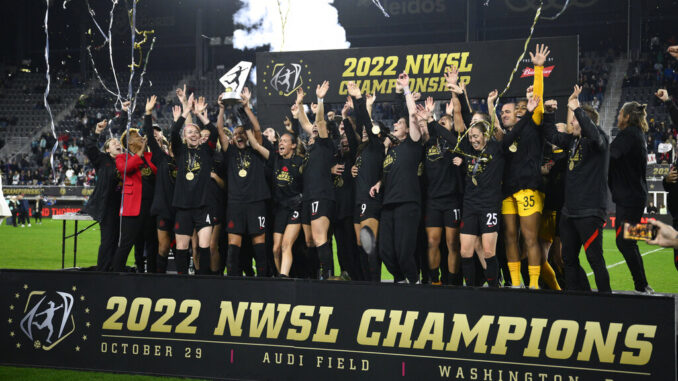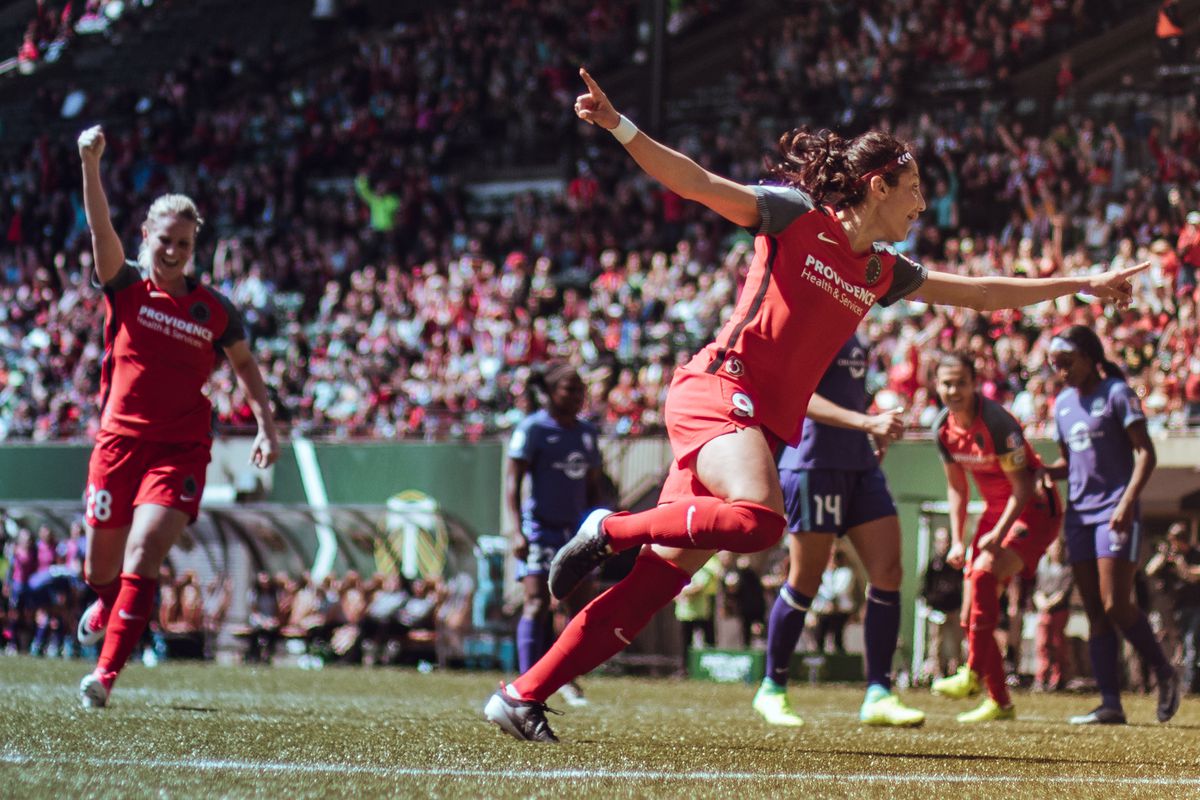
Before this time next year, the Portland Thorns should hopefully have a new owner.
On Wednesday, Merritt Paulson, the owner of the Thorns and the Portland Timbers, announced that he intends to sell the reigning NWSL champion side.
The announcement follows a year plus of scandal-plagued operations stemming from allegations of sexual misconduct against former Thorns coach Paul Riley and the subsequent coverup by the Thorns organization. Following the publication of a report by former US Attorney General Sally Yates that revealed even further misdeeds in the Thorns and Timbers front office, Paulson cleaned house in the organizations front office, firing General Manager Gavin Wilkinson and club president Mike Golub, as well as stepping back from everyday decision making in operations in the Thorns and Timbers.
Now the next shoe has dropped.
However, will the decision to sell the Thorns change much, at least from the standpoint of Paulson profiting off his misdeeds?
The answer, unfortunately, is no.
Paulson is not moving on from the Thorns out of the goodness of his heart. He doesn’t act without a plan. And he doesn’t make a plan unless there is a way for it to make him money.
Peregrine Sports, Paulson’s umbrella company for the Thorns and Timbers, is the leaseholder for Providence Park. Currently, Paulson owns the two primary tenants of the building. If and when the Thorns go under new ownership, they’ll simply pay rent to their former owner to use the building they’ve called home since the beginning of their existence.
In a statement announcing his intent to sell, Paulson made clear that he hopes that will be the plan:
“[W]e will be a key partner to the new Thorns ownership group, as we believe the team should continue to call Providence Park its home. I am fully committed to doing all that is necessary to ensure a smooth transition and the continued success of the Thorns, including providing favorable usage terms for Providence Park that will enable the Thorns to continue to capitalize on their popularity in Portland.”
Paulson doesn’t elaborate on those “favorable terms,” but if it’s anything other than “The Portland Thorns may use the facility for free and retain all money from concessions, merchandise, ticket sales, and other associated gameday revenue,” he still stands to make a decent chunk of change from his new sub-tenants.
In the City’s lease with Peregrine for Providence Park, it states that Peregrine controls licensing for “food, beverages and merchandise” sales at the Stadium and also that Peregrine will “retain all revenues from such sales.”
Part of the Thorns’ gravitas in the NWSL is that, in addition to bringing in top-caliber players and consistently competing for championships, is that they take their operation seriously. They don’t play on a beat-up Division III college field or a repurposed rec center-they play in an honest-to-goodness top-flight stadium. Paulson isn’t wrong when he states that Providence Park is the best venue to capitalize on their popularity in Portland because it is literally the only venue to capitalize on their popularity in Portland. Sure, there are places the team could play outside Providence Park, such as Merlo Field at the University of Portland or Hillsboro Stadium, but none of them come with the benefits and aura of playing in front of a packed house in downtown Portland.
If the Thorns continue to play at Providence Park, any solution other than being allowed to pay for free and receiving all the benefits of concessions and merchandise sales means Paulson simply continues to make money while being unburdened from paying player and Thorns staff salaries. Getting a pile of money without obligation sounds like a terrifying punishment for allowing years of sexual harassment and misdeeds to be perpetuated on one’s watch. Paulson must be quaking in his loafers at the prospect. Additionally, the Thorns would continue to play in and likely operate out of the same building they always have, haunted by the same tarnished culture that finally motivated Paulson to sell the team.
That’s why the City of Portland needs to keep a careful eye on what occurs with the sale and if the Thorns decide they want to continue playing at Providence Park. Paulson has the final say on which bids, if any, he chooses to purchase the team from him. While he stated that he wants to be a “key partner” for the new ownership, he also wants to get the best deal possible and that the best deal would include a continued revenue stream through the use of Providence Park. If those “favorable terms” wind up being more “favorable” to him, it will be past time for the City to step in. Providence Park ultimately belongs to the people of Portland, after all. While the City granted Paulson’s Peregrine Group wide discretion in operations and revenue of the facility, the buck still stops with the City. The contract with Peregrine is a tough one to break on both sides, with the “easiest” ways involving the bankruptcy of Peregrine, the building being burned down or destroyed, or the City defaulting on the property.
However, as incoming Portland city councilmember Rene Gonzales pointed out last month, Peregrine does carry certain contractual obligations in running the building, including hiring and managing employees to comply “with all Laws relating to employment, including, without limitation, those pertaining to workers’ compensation, social security, unemployment insurance, hours of labor, wages, working conditions, and equal opportunity employment.” Additionally, Peregrine pledges to follow all city laws regarding discrimination, including gender and sexual orientation. It could be argued that the environment Paulson created, aided, and abetted could constitute a breach of that contract. The City can then raise a point of agreement dispute with Peregrine and if they fail to resolve the dispute by mutual agreement, go to arbitration to settle the dispute. It’s impossible to know if those points would hold up in arbitration. Still, it should provide enough leverage for the City of Portland to grind the gears of its democracy into something resembling action.
It’s past time for the City to start leaning on him to get out of town altogether. While Paulson certainly has powerful allies, such as MLS commissioner Don Garber, the City needs to clarify that he shouldn’t count the City of Portland among them. It’s not a perfect solution, but Paulson started this process by making as minimal changes as possible. That has now evolved to booting his loyal compatriots in Golub and Wilkinson, stepping away from the teams he owns, and now selling the Thorns. Perhaps with another good push from the City, he’ll realize that the only one left to go down with the ship is himself.




